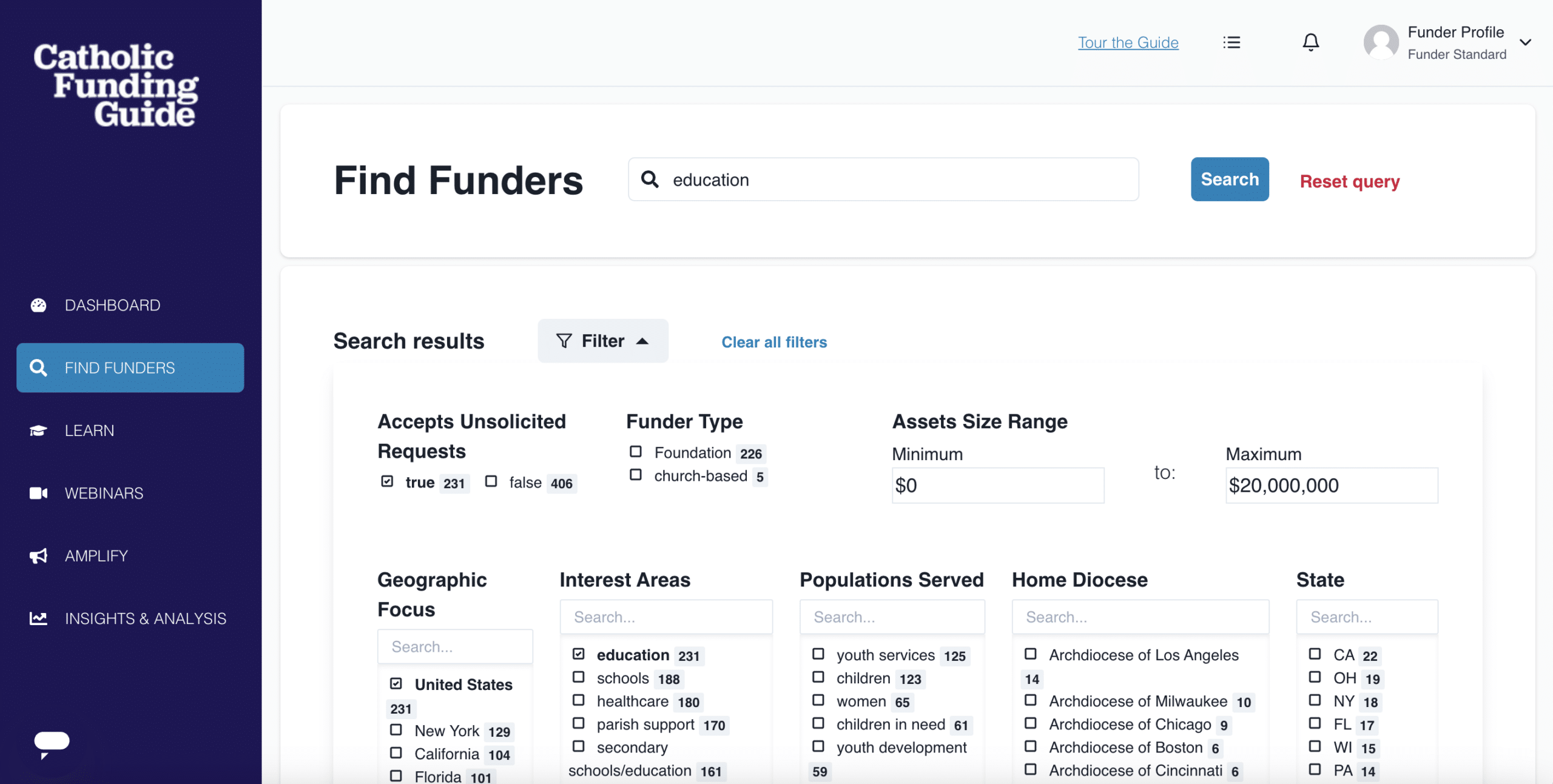“Fund-raising is a very rich and beautiful activity. It is a confident, joyful, and hope-filled expression of ministry. In ministering to each other, each from the riches that he or she possesses, we work together for the full coming of God’s Kingdom.” (Henri Nouwen, A Spirituality of Fundraising)
Why Donor Appreciation Events Matter
It is critical to build meaningful relationships with donors in order to drive retention and engagement. This is impossible if all you do is ask them for money (that can quickly cause donor fatigue).
Do your donors feel appreciated? Do they understand the impact their gift makes in your organization and for those you serve? Donors who question their worth with an organization typically stop giving and find another cause to support. Not only is thanking donors the right thing to do, but it is necessary to avoid donor fatigue and loss of funds.
Planning donor appreciation events can cultivate these vital relationships and increase supporters’ commitment to your cause. This can manifest itself in ways you might not expect, such as leaving your organization a legacy gift or investing non-cash assets such as stock or real estate into your work. Donors may even join your board of directors or offer professional services pro bono.
Additionally, when donors feel passionate about your work and feel they are appreciated and necessary, they will likely spread the word to others about your mission.
Two Common Obstacles to Donor Appreciation Events
Small Budget
A limited budget often causes fundraising professionals to pause when considering a donor appreciation event. If funds are tight, a cultivation event may seem unrealistic.
Donor retention should be part of your organization’s budget, and hosting an appreciation event is so important that you should strongly consider doing so whether or not you have a lot of money to invest in it. Don’t be afraid to ask people on your staff (or your volunteers) what special skills they have that they can put to use, free of charge, to make the event a success.
Staff Constraints
Another issue you may be concerned about is staff capacity. Nonprofit employees are often stretched thin as it is; they may not have the ability to set aside time to plan an event.
Keeping things simple and engaging volunteers to help can remove some of the burden from your team. Although it may be a short-term inconvenience, taking time and energy to strengthen donor relationships is worth it in the long run.
Donor Appreciation Event Ideas, Even for Small Budgets
The type of event you decide to host will depend on your donor demographics, the time of year, the available locations, and the estimated number of attendees. Always ask, “What would my donors enjoy?”
Here are several ideas to spark inspiration for you:
- Meet-and-greet. Host a small gathering with some of the people who benefit from your services. Give donors a chance to talk with them one on one.
- A barbecue or cookout. To save money, your volunteers or staff may be willing to bring side dishes and dessert.
- A party with a DJ and music. The type of music you choose will depend on your donor demographic, of course. If you can’t afford a DJ, use a playlist from your phone or laptop. Hiring a local band can also be a budget-friendly option.
- Dinner or cocktails at a local restaurant. Some places offer group discounts. Catering may also be more affordable.
- Lunch gathering. Whether catered or at a restaurant, lunch is often a cheaper alternative to hosting a dinner.
- Wine tasting. As an extra thank you for donors, you could host a random drawing for a wine basket.
- Beach party. Depending on the season, demographic, and your location, this can be a great way to allow donors to relax and have fun while feeling appreciated. You could provide light snacks, drinks, and music at a pavilion or hotel near the water. Have a backup location handy in case of inclement weather.
- Game night. Perhaps a local bar or restaurant could host the event, or you could use a rental space and invite everyone to bring their favorite game.
- A historical outing. If it makes sense with your organization’s mission, you could visit a nearby museum, historical site, or cathedral.
- A class or hands-on event. Hosting a pottery class, gardening lesson, baking class, or another hands-on event creates a memorable experience for your donors. Try to select an activity with some connection to your mission.
- Virtual or hybrid event. If your donors are unable to convene in a common area, or if health and safety prevent an in-person gathering, you could host a virtual or hybrid event. This could be as simple as a virtual tour, “BYOB” virtual cocktails, a live-streamed concert, or even a virtual art class, depending on your donors’ interests.
Wondering who to invite?
Some organizations may reserve donor appreciation events to major donors, but consider opening the doors to everyone who has donated to your cause whom you can easily contact by phone, email, or mail.
The amount a donor has given in the past doesn’t always indicate their capacity to give; some donors will give more when they feel confident about investing in your work. Even those who are already giving at capacity may invite friends to donate. Hosting an event solely for current major donors can close the door on these opportunities.
There are ways you can give major donors a VIP treatment (thank them on social media, acknowledge them during a speech at the event, or include their names on the wall in your organization); but keep in mind that you don’t want other generous supporters to feel left out or unappreciated.
Tips for a Successful Cultivation Event: Do’s and Don’ts
- Do emphasize gratitude. Thank them as they arrive, and incorporate a theme of gratitude wherever possible.
- Do open the event with a special prayer of thanksgiving for donors and the good that they have made possible. You could even offer to pray for donors individually, inviting them to share their special intentions.
- Do emphasize the impact they make. For example, you could give a presentation highlighting donors’ impact in a data-driven yet emotionally compelling way.
- Do incorporate personal stories. Hearing directly from people who are impacted by your work is often the best “thank you.” If this is not possible, focus attention on the people who benefit from your work rather than on the organization itself. Do provide an item they can take home with them: a branded t-shirt, a potted plant, a water bottle or mug, maybe a basket of snacks, coffee, or wine…something that represents your organization and the event, but is also useful.
- Do make the invitation and event exciting. Provide interesting information that will draw them to attend and inspire them to share with family and friends. Attendees should feel invigorated about the work you are doing and the difference their support is making.
- Do allow donors to connect with each other. Creating a sense of community around supporting your organization will be beneficial for donors and your organization alike. When donors feel part of something bigger than themselves, it reinforces their decision to give.
- Don’t make an ask. You can provide information on your mission, such as a take-home pamphlet that includes ways to donate. But absolutely do not make an ask. That is not the point of this event. At best, it can irritate donors and make them feel like their contributions were not enough if you switch the focus from gratitude to fundraising. At worst, it can make them feel deceived and decide to stop giving.
- Don’t market it like a fundraising event. It’s important to differentiate a donor appreciation event from a fundraising event so no one is confused when they receive the invitation. Use different colors, different words (party vs. gala, for example), etc. in your communications about the event.
Donor Cultivation Continues with Follow Up
The event is over. People logged off or went home. The cleanup crew came and put everything away. However, there is still one important task to do. Following up with attendees after an appreciation event is very important. It perpetuates the feeling of generosity, leaves a positive impression, and reinforces their decision to attend.
Here are some simple ways you can follow up:
- Share photos from the event on your website and social media pages, tagging attendees and volunteers directly with a thank you.
- Give a recap of the event and thank attendees directly in your newsletter and as part of your email strategy.
- Send a follow-up note (perhaps handwritten!) to thank them for attending, express their important role in your mission, and share that you look forward to the next gathering.
- Ask for feedback. Did attendees enjoy the event? Do they have suggestions for the future? You could send out a survey or just invite them to email or call you with their thoughts.
Learn more about fostering meaningful relationships with funders.



